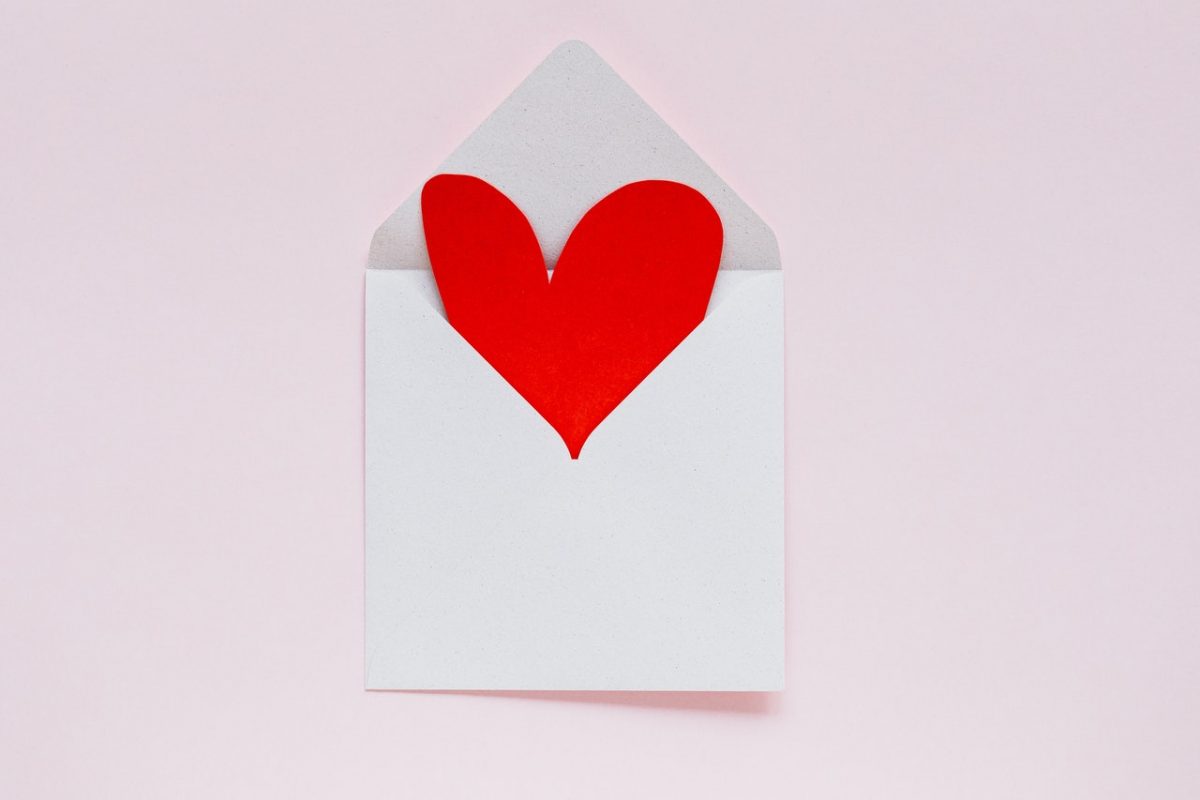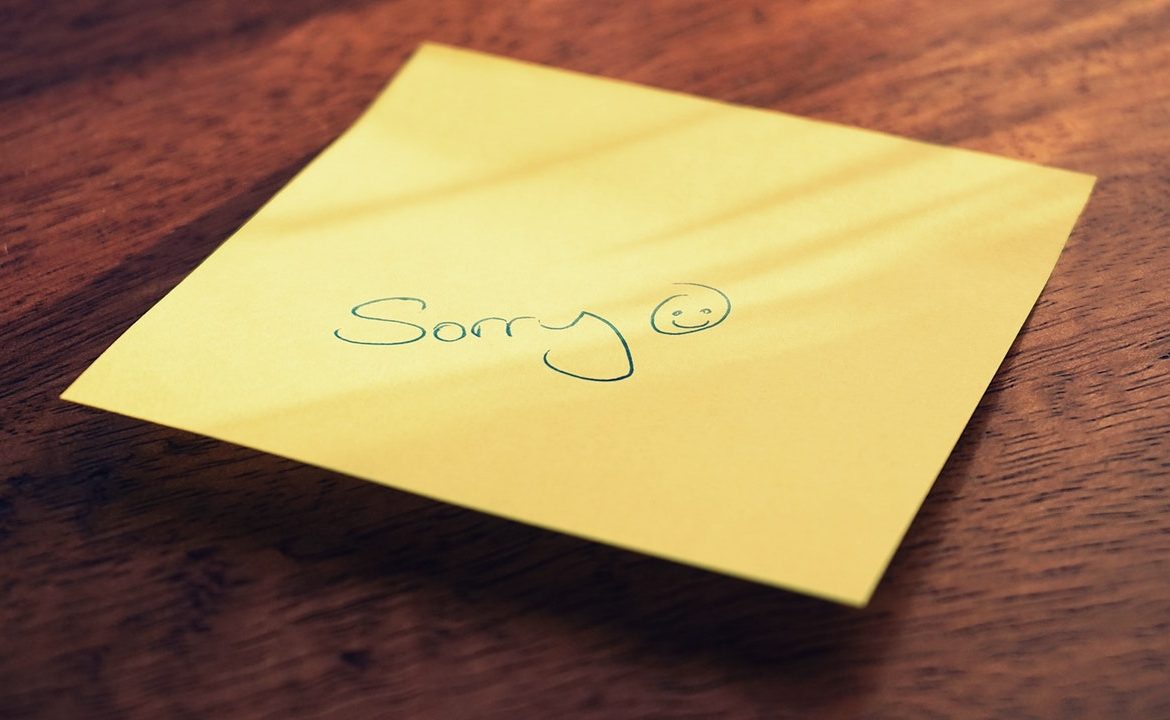We were taught from a very young age that an apology is needed for any offense we may have done toward others. Despite this, as adults, some of us still have complicated feelings when it comes to actually doing it. Some find it very hard, preferring not to do it at all out of fear of rejection or shame.
That said, the art of apologizing can be learned and with practice, it can come much easier for anyone to do. This is a particularly important lesson to learn since our ability to say sorry can affect the well-being of our relationships, whether platonic or romantic. Knowing how to apologize is also key to self-growth. When we do it sincerely, it makes us think about what we have done and how to be better.
The Necessity of an Apology


Just like saying thank you, saying sorry is important when it comes to maintaining relationships and harmony. But have you ever thought about the social function an apology serves? Psychologists have listed down a number of important situations in which an apology is necessary, especially when social rules have been violated.
- Breaking a rule of social conduct. There are little things we do every day that we may not think much of, but can significantly affect those around us. Have you ever cut in line because you were in a rush? Apologizing for the act helps show others that you acknowledge your wrong behavior. It re-establishes the unspoken rules that should be upheld.
- Acknowledging your fault and saving another from embarrassment. Did you know that one of the most common reasons as to why some people don’t apologize is because they refuse to recognize their mistake? For these folks, it is much easier to push the blame onto someone else instead of facing their own shame. By owning up to your mistakes, you are re-establishing your dignity and that of the other party as well.
- It restores harmony. This one goes without saying, especially at work, school, or a place where your group gathers. Even small offenses can create huge rifts when it comes to relationships, but apologizing helps repair this. It also makes everyone feel more comfortable around each other again. In fact, a 2000 study by the University of Massachusetts has shown that relationships become stronger after an apology is made.
- It makes people more confident about you. Contrary to what some might think, apologizing is not a sign of weakness nor will it make you untrustworthy. Instead, it shows that you recognize your mistake and you’re willing to do better. By providing a proper apology, you are letting them know how much you value the relationship.
What Makes an Apology Sincere?


One of the most important things about an apology is the intention behind it. Keep the following in mind:
- Apologizing from the heart.
- Not wanting to prove who is right or wrong.
- Letting go of bitterness.
- Never doing it to get forgiveness.
The Benefits of Apologizing
Apologies aren’t just mere words. For yourself and others, these can also become sources of relief. Conflict can cause considerable stress for both parties involved and if prolonged, this can easily take a toll on their mental well-being.
An apology can help ease the burden and enables everyone involved to put it behind them. It won’t be easy for anyone to move on if the conflict remains unsolved and feelings remain hurt.
Aside from helping with stress relief, knowing how to apologize can also strengthen relationships. It also creates a deeper connection and builds trust between people. If you’ve ever wondered if apologizing is worth the effort—the answer is YES.
The Process of Apologizing
How to apologize? It all depends upon the gravity of the situation. One important consideration is to make sure your actions speak louder than your words. As we have established, apologies aren’t just mere words—what follows after is just as important. Here are some things to remember:
- Honor the other person’s experience. You have to understand that their emotions and feelings toward the conflict are just as valid as yours.
- Avoid making excuses for your wrongdoings. Let the other person know that you understand what you did wrong and how it hurt them. Acknowledge your faults.
- Keep doing right. While there’s no way to turn back time, there is a lot that you can do at present. This includes avoiding the same mistake.
Apologies aren’t just a one-time thing. Once you give it, you have to live out all the changes you have outlined. Remember: intention and effort.
How Do You Apologize Professionally?


We have established that apologies are important, but one thing you must avoid is having to constantly apologize for even the small mistakes you make. In a professional setting, giving a formal apology each time might make your employer and co-workers see you as insecure.
For minor transgressions such as being a minute late or getting someone’s coffee order wrong, a concise but sincere “I’m sorry” should do the trick. It’s all about finding a balance between over-apologizing vs. not giving one at all. If it’s a major inconvenience or a show of inappropriate behavior at work, addressing the issue with a formal apology is essential.
Consider the Method
How do you apologize professionally? Some apologies should be given in person, while others can be done through email. It all depends upon what you’re comfortable with, but if you created a major inconvenience then you would want to speak to them in person and explain in detail. Small mistakes can be apologized for through email, but make sure you ask the person if they also want to discuss things in person.
How to Apologize Professionally in an Email:
- Open by stating what happened. You might think this is redundant, but it’s one of the most important elements of an apology e-mail or letter. This gives the other person assurance that you know what you did wrong and that you understand why it’s considered as such. Do avoid being defensive and let the person know your concern is genuine.
- Apologize. Given the professional setting, keep your apology concise but no less sincere. There is no need to bring up personal matters or issues you have at home.
- Provide a solution. Because this is a workplace matter, it is also imperative that you provide a plan of action that would help resolve the issue. By doing so, you are not only giving them reassurance but also taking the initiative to make things better.
- Speak in person. Aside from the email, you may want to check with the other party in person as well. This should give you a better idea about how they really feel, which emails are not able to convey.
- Work with them towards a solution. You’ve given them a plan, but surely they have their own ideas as well. One way of resolving workplace conflict is through learning how to work with each other. Start with an email, but apply the solution in real life as well.
Do note that apologies can also vary depending on the closeness of your relationship with the other party. If they are someone you’re good friends with, a formal apology might come off as insincere so remember to adjust accordingly. If you apologize professionally in an email, it might actually offend them further.
How to Apologize to Your Girlfriend, Boyfriend, or Spouse


If professional apologies are difficult, then apologizing to your partner is even harder. Most of the time, people want to be right and they don’t want to appear weak in front of their partners and spouses. However, this is one relationship where an apology counts the most. Your ability to apologize properly can make or break your bond.
Much like saying sorry for mistakes at work, it’s important to consider the method. Some of us can get carried away with emotion when speaking in person, hindering us from fully expressing what we want to. In such cases, writing an apology letter is better. Through it, you’ll be able to formulate your thoughts better. Here’s what to keep in mind:
- Acknowledge the pain you have caused. This might be the hardest part of any apology, whether done in person or written. It’s because you have to accept that you made a mistake and doing so can be a vulnerable feeling. However, by showing your partner this side to you, you’re also letting them know how much trust you have in them. Remember, actions speak louder than words.
- Never bring up past situations. By doing this, you will give the impression that you’re passing the blame onto them. It can make you appear very petty and this is the last thing you want when asking for forgiveness. Both of you will never be able to move on from the conflict if the past gets constantly brought up.
- Do not make any promises. If you think that doing so will reassure your partner or make them forgive you faster, you are mistaken. In fact, adding promises to an apology letter might make it seem insincere. Even if you do intend to keep your word, it’s always better to “show” instead of “tell”.
- Give your partner time. Always remember to let your partner have time to process your apology and never rush things. Don’t expect a reply the same day you give them your letter. This is especially so if you have committed a serious mistake. Allow your partner to work through their feelings and gather their thoughts. This would be best for your relationship.
- Forgive yourself, too. Show yourself the same compassion that you are asking for your partner. Despite your faults, understand that you also deserve peace, especially if you are sincerely working toward making things better.
How to apologize to your girlfriend, boyfriend, or spouse? Gifts are great, but your actions after the fact matter so much more.
How Do You Apologize to Someone You Hurt Deeply?


Whether they be a family member or a close friend, a simple apology may not always be enough if you’ve hurt them deeply. There are many ways to apologize for a major offense, but the most important thing is your sincerity. An apologetic letter or text message may not be enough, so you’ll need to think of creative yet meaningful ways. Below are a few ideas:
- Prepare something special for them. You can treat them to dinner or prepare one at home instead. The more private the setting, the better since it would give both of you room to talk about the issue at hand. Remember that while you want the mood to stay light, do not joke about the situation.
- Send a meaningful gift. How do you apologize to someone you hurt deeply if they’re far from you? A bouquet or their favorite take-out can help. After sending the surprise, make sure you speak to them and apologize for your mistake. Always initiate things, especially if you know you’re the one to blame.
- Communicate. In some cases, a straightforward discussion is what’s needed to repair things. This sounds daunting for some, but it is a way for both sides to air out grievances so that they may reach a solution. Privacy is key here since you would want a safe place where you can speak freely and without worry.
- Say sorry in your own words. As much as possible, apologize with your own words and not someone else’s. This points to sending quotations or songs to express your feelings. Your effort is just as important as your words, so even if you’re unable to fully articulate how sorry you feel, it’s best to give an apology that you made yourself.
- Always listen. Apologies tend to be one-sided because you want the other person to listen to you. However, it is just as important to hear them out. Ask them about how they feel and what they think. You may not get the answer you want, but this is an important step towards reparations.
Is it Ever Too Late to Apologize?
There’s no time limit to giving an apology, but remember that the other party may not always be as welcoming. As we’ve established earlier, not every apology will be accepted. This is simply a fact. Aside from respecting their healing process, you must also respect yours. Apologizing before you’ve fully understood the gravity of your mistake can lead to you repeating it.
Do things at your own pace and respect others. Apologize when you’re ready and never rush things just so you can move forward and forget about it.

